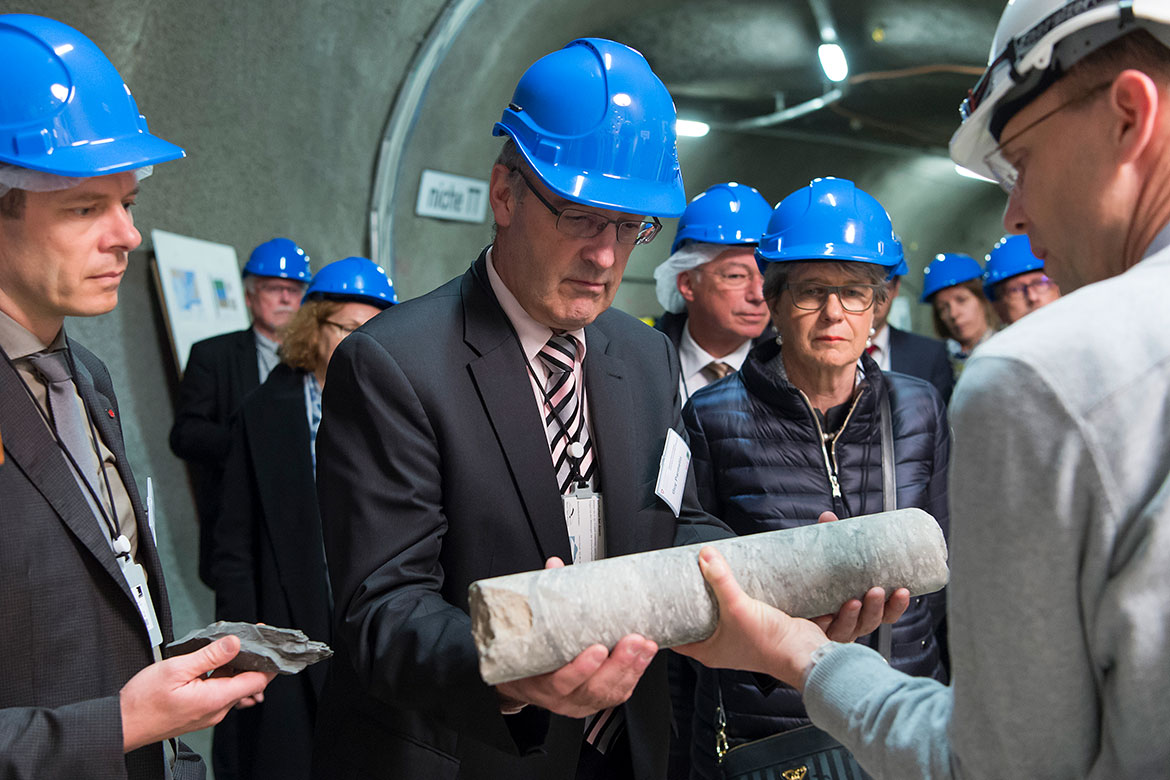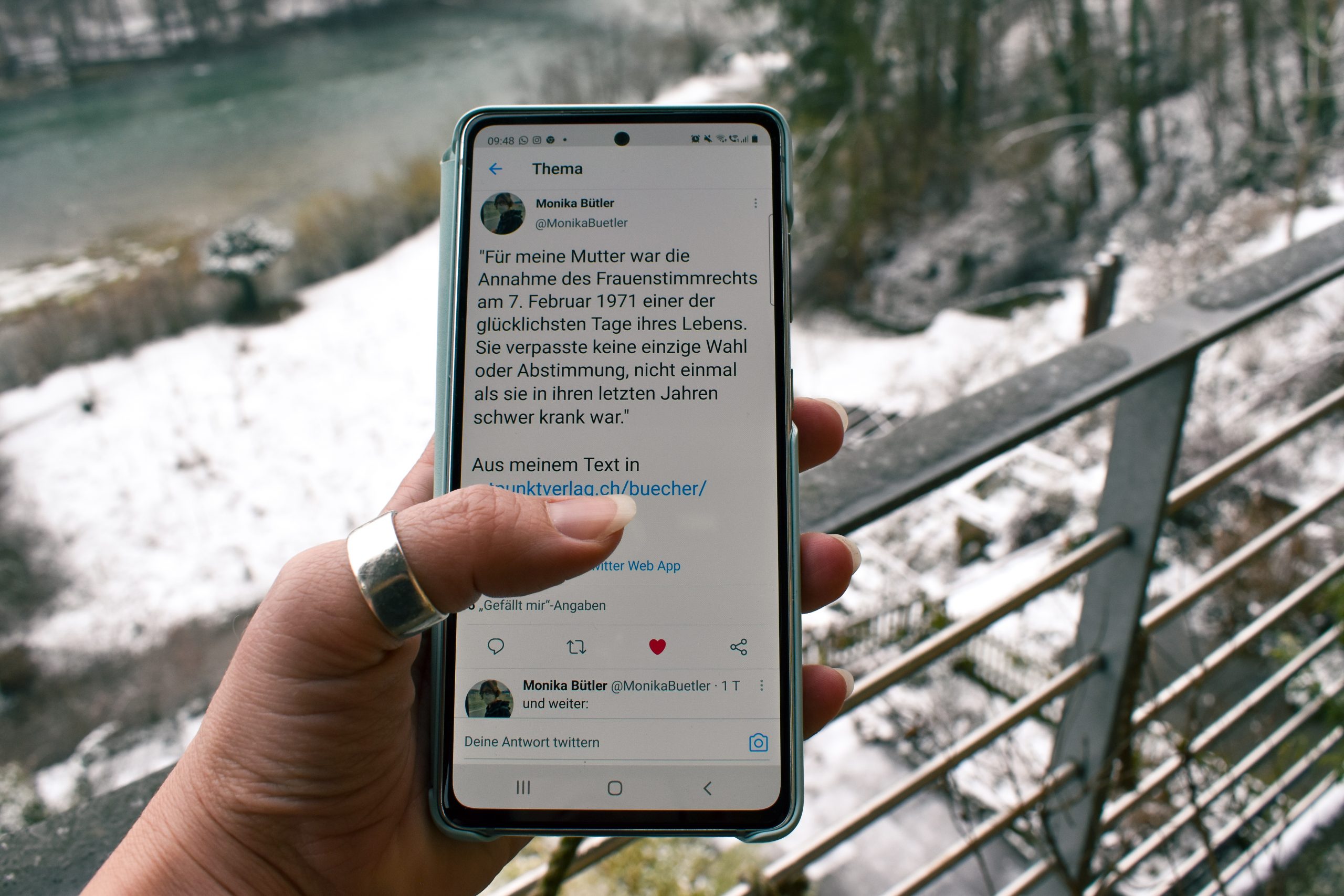Should researchers still be attending international conferences in person?
Since the pandemic at least, people have been asking whether it’s necessary to travel to conferences. Arguments against are the damage to the climate, and the increased diversity of researchers that is possible online. Do we really need to attend in person?

Image: zVg

Image: zVg
However, we have to consider the environment, so we first have to take note of how often we go to meetings in person, and secondly how we travel there. Well-functioning teams can do a lot of things virtually, because they already have an established basis of trust. And if we travel, we can do so at leisure by train, with a small ecological footprint, or at greater speed with a bigger footprint, by taking the plane. If we make intelligent decisions, we can reduce the environmental damage of conferences. Hybrid events allow a ‘hard core’ of people to meet in person, while reaching a bigger audience by streaming. This enables us to maintain our personal interactions, while improving the spread of knowledge by digital means. The will to solve complex problems is what drives our innovative ability. We mustn’t demonise anything, but develop intelligent solutions – because I’m not prepared to move completely into a virtual world!
Oliver Inderwildi runs ProClim – the forum for climate and global change of the Swiss Academy of Sciences (SCNAT) – and is the author of several books on reducing emissions.
In order to justify physical attendance at a conference, we must first question whether the traditional ways of organising conferences are still the most effective way to share research. Large international conferences generally mean extensive travel by participants; packed parallel sessions; subjecting attendance at talks – yours and others’ – to the organiser’s scheduling; and networking being heavily skewed to pre-arranged meetings with established collaborators.
The benefits of establishing virtual meetings and conferences now go beyond the traditional conference setting. First, we lower our carbon footprint, which has become synonymous with scientific research and collaboration. Second, we promote greater inclusivity. Ask yourself: who is typically represented among the keynotes, speakers and participants? Physically attending a conference is highly reliant on a participant’s individual circumstances, project funding and time constraints, whereas a move to online platforms provides greater flexibility to all attendees. Third, by allowing participation online, we are able to learn from those we may not have had the opportunity to hear previously. Working with diverse groups promotes novel insights, invoking unconventional solutions and the exchange of higher quality ideas.
Although early career researchers may need physical attendance to establish their networks, to a certain extent we may often attend conferences due to a ‘fear of missing out’, rather than a need to do so. Covid-19 turned our private and professional lives upside down and although not being able to be physically present at conferences may have been frustrating at first, we quickly adapted and utilised the online conferencing tools which were already widely available. After all, there are – besides the pandemic – good reasons to work with colleagues from other institutions without being physically together. Therefore, now is our opportunity to embrace virtual conferencing, push our collaborations further than our own limited network, and continue our work in a more open and global scientific community.
Dr Rosetta Blackman is a post-doctoral researcher in freshwater ecology at Eawag and co-creator of the ABCD conference framework for sustainable and inclusive conferences.

Image: zVg
Would you buy a house after seeing it online only? Or plan an operation with a surgeon only over the Internet? I wouldn’t. These procedures require trust, and this can be better established through personal contact. This is no less relevant in the field of scholarship and science. Physical interactions are essential for exchanging information, forming collective intelligence and developing interdisciplinary and transdisciplinary ideas. We send out subtle messages through our body language, micro-expressions and tone of voice, which means that personal contact is essential for researchers. The complexity of nonverbal communication cannot be digitalised yet. Creative thinking and mutual inspiration get lost in the expanses of the Web. What’s more is that the Corona crisis has made us aware that misunderstandings occur far more often in virtual encounters than when we meet in person. And let’s be honest: Haven’t we all missed that personal contact?
However, we have to consider the environment, so we first have to take note of how often we go to meetings in person, and secondly how we travel there. Well-functioning teams can do a lot of things virtually, because they already have an established basis of trust. And if we travel, we can do so at leisure by train, with a small ecological footprint, or at greater speed with a bigger footprint, by taking the plane. If we make intelligent decisions, we can reduce the environmental damage of conferences. Hybrid events allow a ‘hard core’ of people to meet in person, while reaching a bigger audience by streaming. This enables us to maintain our personal interactions, while improving the spread of knowledge by digital means. The will to solve complex problems is what drives our innovative ability. We mustn’t demonise anything, but develop intelligent solutions – because I’m not prepared to move completely into a virtual world!
Oliver Inderwildi runs ProClim – the forum for climate and global change of the Swiss Academy of Sciences (SCNAT) – and is the author of several books on reducing emissions.

Image: zVg
In order to justify physical attendance at a conference, we must first question whether the traditional ways of organising conferences are still the most effective way to share research. Large international conferences generally mean extensive travel by participants; packed parallel sessions; subjecting attendance at talks – yours and others’ – to the organiser’s scheduling; and networking being heavily skewed to pre-arranged meetings with established collaborators.
WThe benefits of establishing virtual meetings and conferences now go beyond the traditional conference setting. First, we lower our carbon footprint, which has become synonymous with scientific research and collaboration. Secondly, we promote greater inclusivity. Ask yourself: who is typically represented among the keynotes, speakers and participants? Physically attending a conference is highly reliant on a participant’s individual circumstances, project funding and time constraints, whereas a move to online platforms provides greater flexibility to all attendees. Thirdly, by allowing participation online, we are able to learn from those we may not have had the opportunity to hear previously. Working with diverse groups promotes novel insights, invoking unconventional solutions and the exchange of higher quality ideas.
Although early career researchers may need physical attendance to establish their networks, to a certain extent we may often attend conferences due to a ‘fear of missing out’, rather than a need to do so. Covid-19 turned our private and professional lives upside down and although not being able to be physically present at conferences may have been frustrating at first, we quickly adapted and utilised the online conferencing tools which were already widely available. After all, there are – besides the pandemic – good reasons to work with colleagues from other institutions without being physically together. Therefore, now is our opportunity to embrace virtual conferencing, push our collaborations further than our own limited network, and continue our work in a more open and global scientific community.
Dr Rosetta Blackman is post-doctoral researcher in freshwater ecology at Eawag and co-creator of the ABCD conference framework for sustainable and inclusive conferences.




